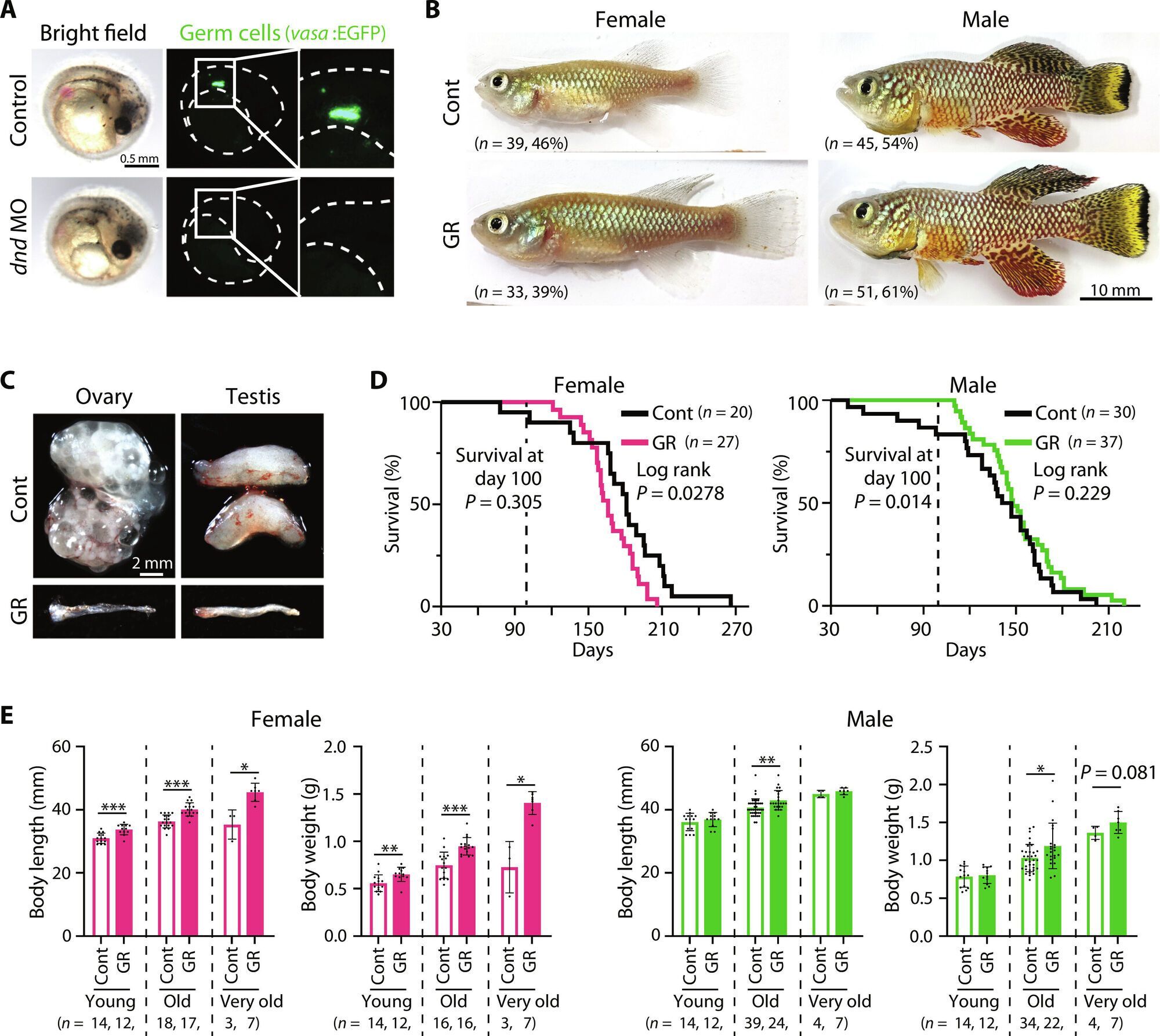News
Scientists have finally found out why women live longer than men
Japanese scientists have solved the eternal mystery of why women live longer than men. Thanks to the latest study, it turned out that the main reason may come down to the smallest and largest cells in the body: sperm and eggs, which are key to human reproduction.
Scientists have shown for the first time in vertebrates that cells that develop into eggs in females and sperm in males cause sex differences in life expectancy. And removing the cells leads to animals having the same lifespan, The Guardian writes.
The experiments were conducted on small turquoise marine fish, a freshwater species that reaches sexual maturity within two weeks and lives for several months, but researchers suspect that a similar biological mechanism may influence the difference in life expectancy between humans and other species.
"The aging process of marine fish is similar to that of humans, so I don't think it's any different in humans. So this study could be a stepping stone to understanding the control of aging in humans," says Professor Toru Ishitani, senior author of the study at Osaka University.
On average, women around the world live about 5% longer than men. Numerous factors contribute to the discrepancy: young men are more likely to die from accidents and suicide, and women often lead healthier lifestyles. But the difference is also observed in other species: females of great apes and old-world monkeys live longer than their males.
Ishitani said that the presence of sperm or eggs is one of the most obvious differences between men and women, so it makes sense to investigate whether they affect life expectancy. In a series of experiments, his team showed that stopping the production of germ cells that develop into sperm or eggs resulted in longer lives for males and females that died younger than usual, essentially closing the lifespan gap.
"We expected that germ cell removal would extend the lifespan of both males and females, but it only extends the lifespan of males and shortens the lifespan of females. This was unexpected, but we realized that this discovery could shed light on sex differences in lifespan," commented Ishitani.
In an article for Science Advances, the researchers describe how blocking sperm and egg production had consequences for fish. Hormonal changes in females stimulated growth by maintaining healthy tissues, while a decrease in estrogen increased the risk of cardiovascular disease. Males, on the other hand, produced more vitamin D in their liver, potentially explaining their better bone, muscle, and skin health.
"Here, the removal of sperm or egg progenitor cells resulted in a shorter lifespan for females, but in males, it was extended, as was height, probably through a mechanism related to increased vitamin D activity. The signals of these cells that modulate lifespan differ between the sexes in these fish, and, in all likelihood, in other animals as well," the study author believes.
Only verified information is available on the OBOZ.UA Telegram channel and Viber. Do not fall for fakes!




























